Whilst driving between Abha and Tanoumah in mid-October 2018 we saw 28 Steppe Eagles with a further 51 on the return journey. Birds seen included immatures, sub-adults and adults and will probably include birds that will stay the winter in the region along with migrants. These sightings fit in well with the idea that Steppe Eagle is a long-distance trans-equatorial migrant and unlike many other eagles, the species migrates in large, loose flocks.
Individuals leave their breeding grounds for wintering grounds between August and October, returning to breeding areas between January and May. In Saudi Arabia 500 Steppe Eagles have been counted passing through Taif escarpment (IBA), daily, during month of October and many hundreds were seen at a rubbish dump 50 kilometres north of An Namas also in October. These records indicate October is the peak month for migrating Steppe Eagles in Saudi Arabia.
Like other soaring birds, Steppe Eagles minimize the length of sea crossing and appear to have a loop migration around the Red Sea, arriving via Bab-el-Mandeb Strait (between Yemen and Djibouti) and departing via the Suez, Egypt–Eilat, Israel (the northern end of the Red Sea). This is probably because the prevailing easterly winds between October and April make return migration via Bab-el-Mandeb more difficult.
There are two recognised subspecies of steppe eagle,Aquila nipalensis nipalensisandAquila nipalensis orientalis, the latter being slightly smaller, with paler plumage. Birds from European Russia, eastern Kazakhstan and Turkey (A. n. orientalis) winter in the Middle East, Arabia and East and Southern Africa. Birds from Altai, Siberia eastwards (A. n. nipalensis) winter mainly in south and south-east Asia. The Steppe Eagle has undergone extremely rapid population declines within all its range.
The speed and severity of these declines justified the species being moved from ‘Least Concern’ to ‘Endangered’ in the 2015 IUCN Red List assessment. Suspected reasons for decline include, habitat loss/ degradation, electrocution on or collision with energy infrastructure, poisoning through herbicides, pesticides and veterinary drugs in food sources, persecution, mortality of juveniles in fires, taking of chicks and disturbance.

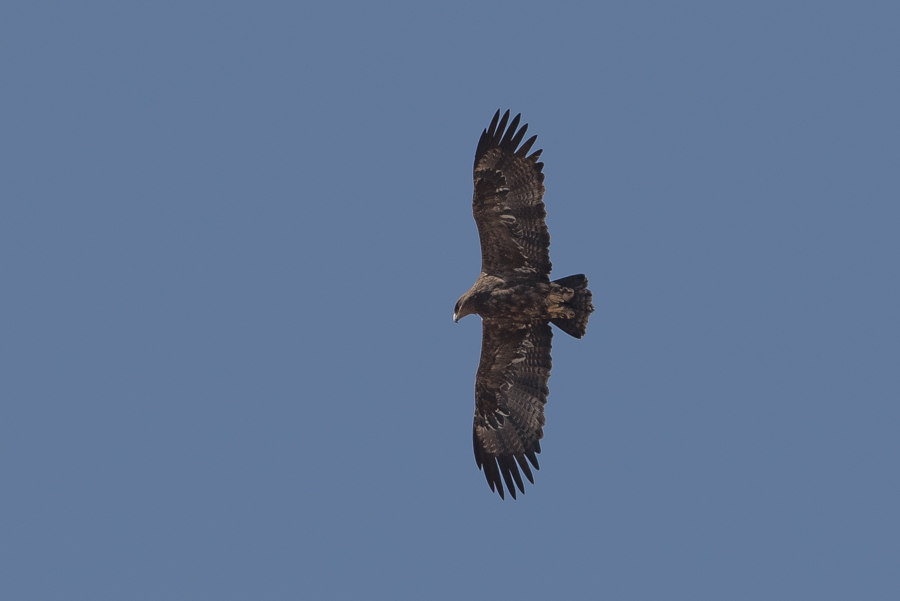
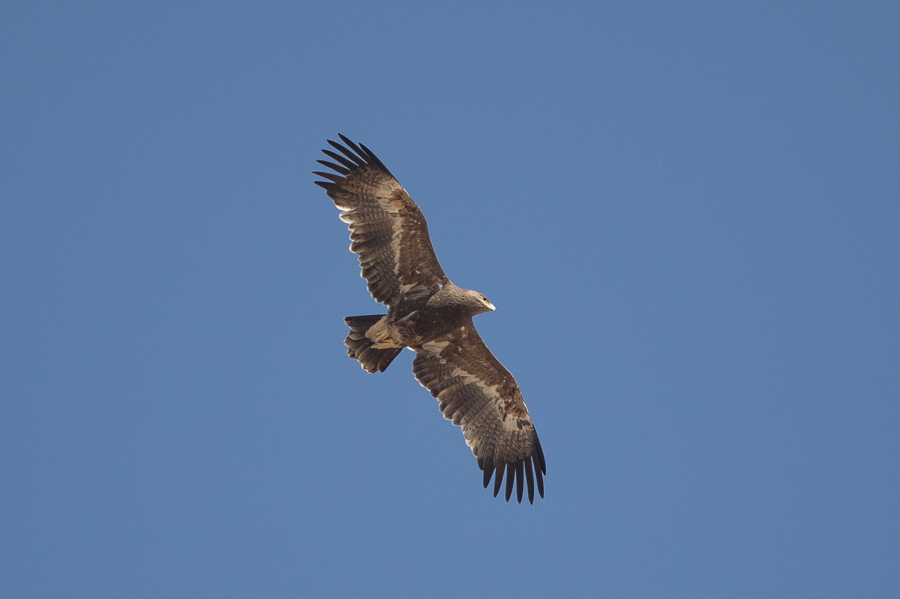
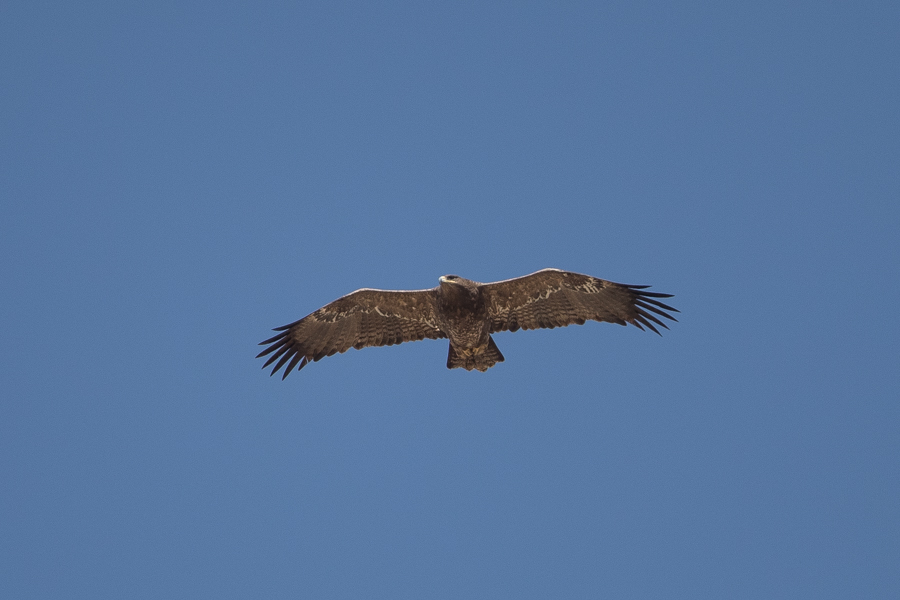
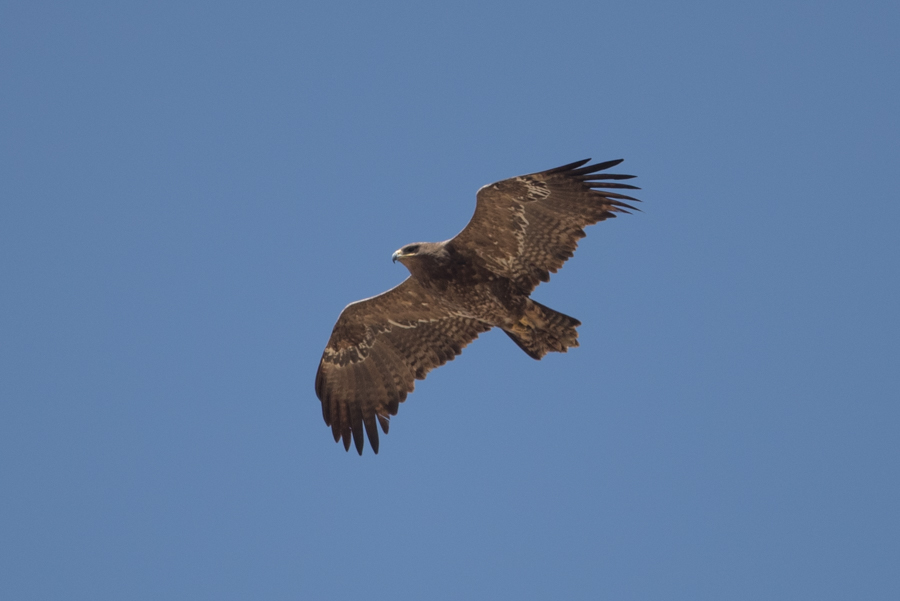

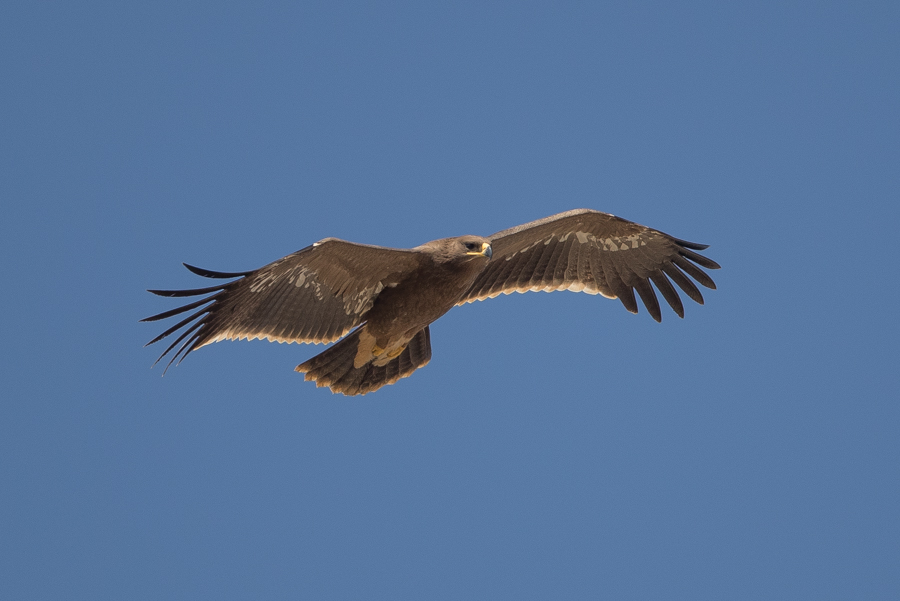
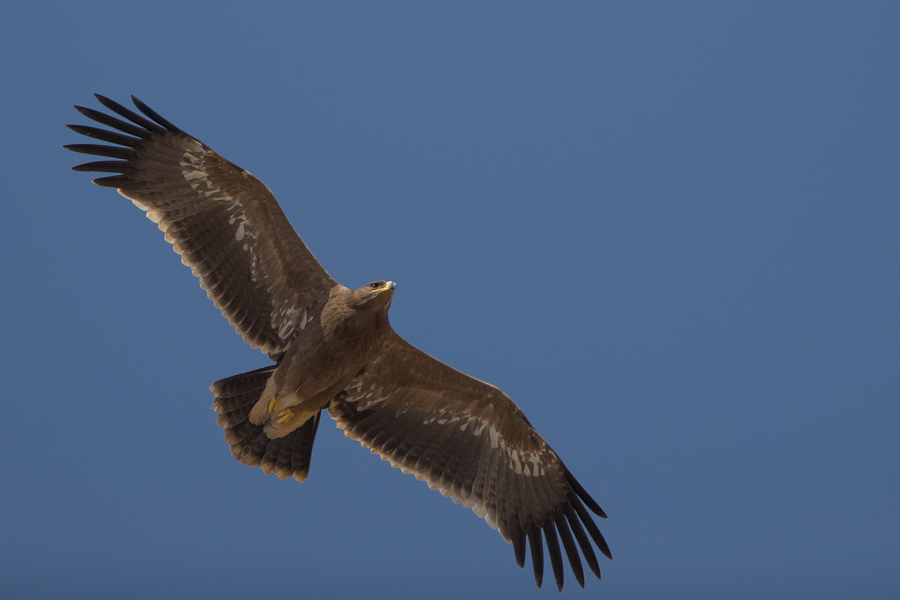
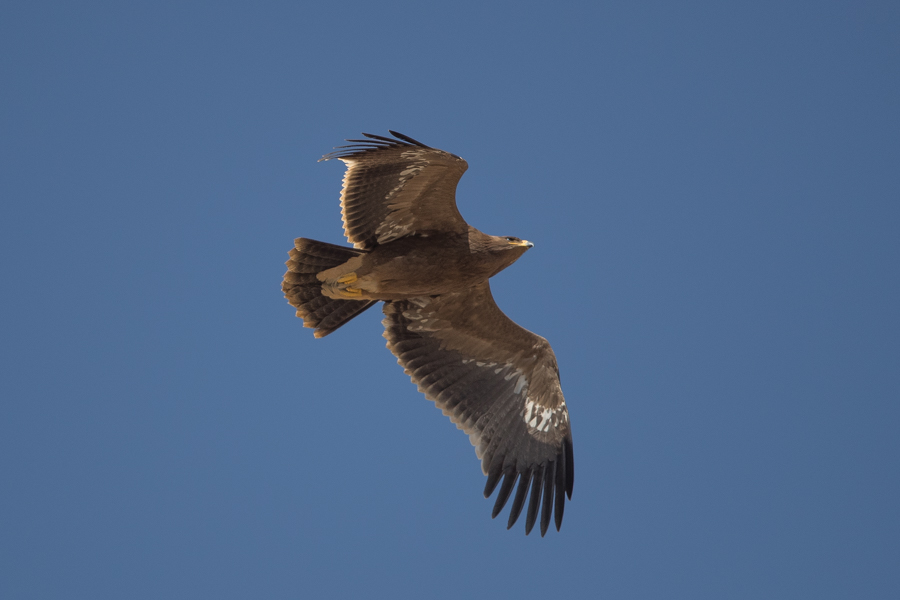
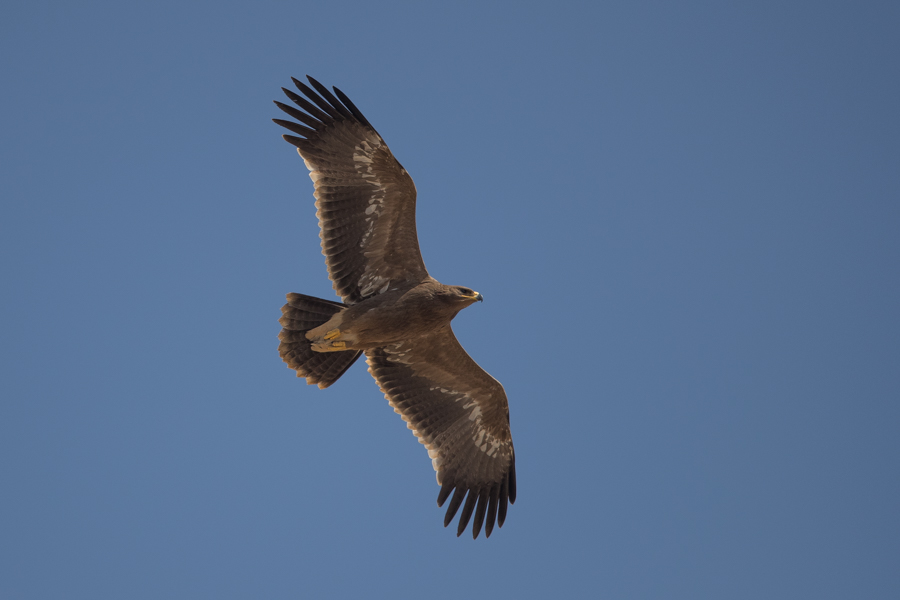

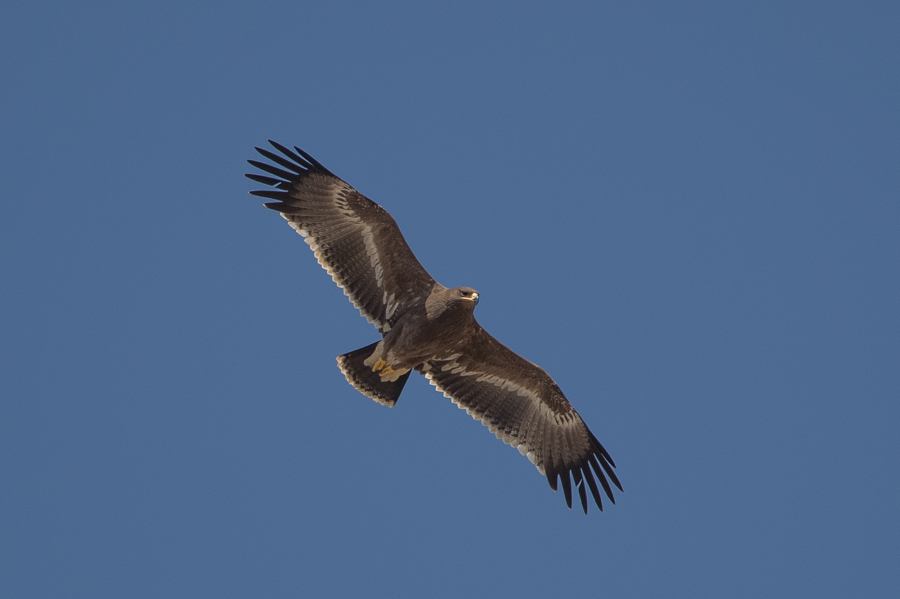
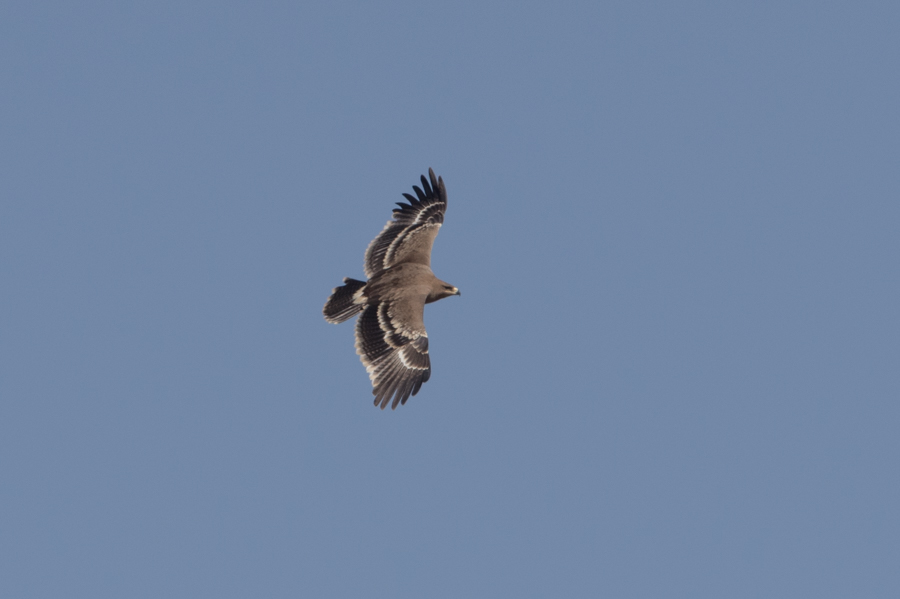
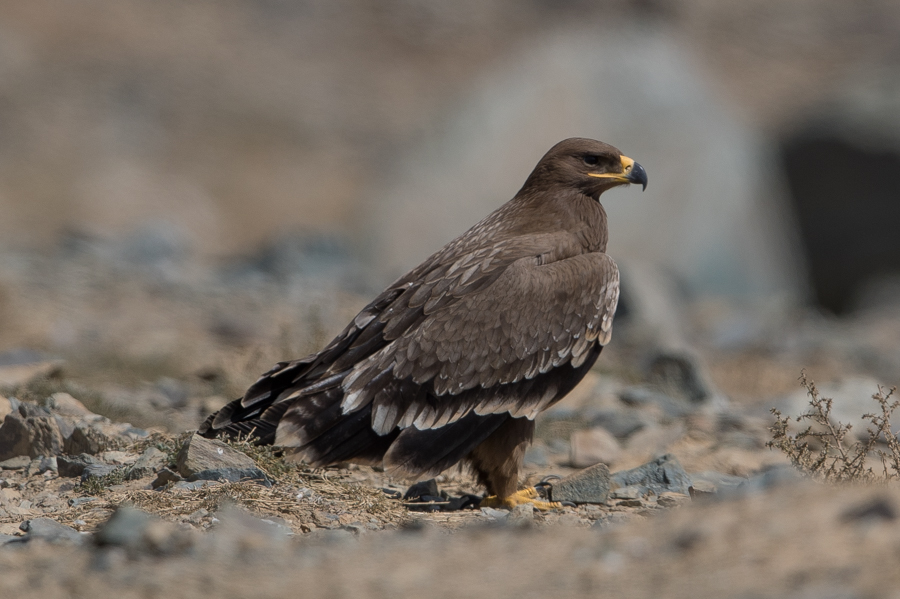
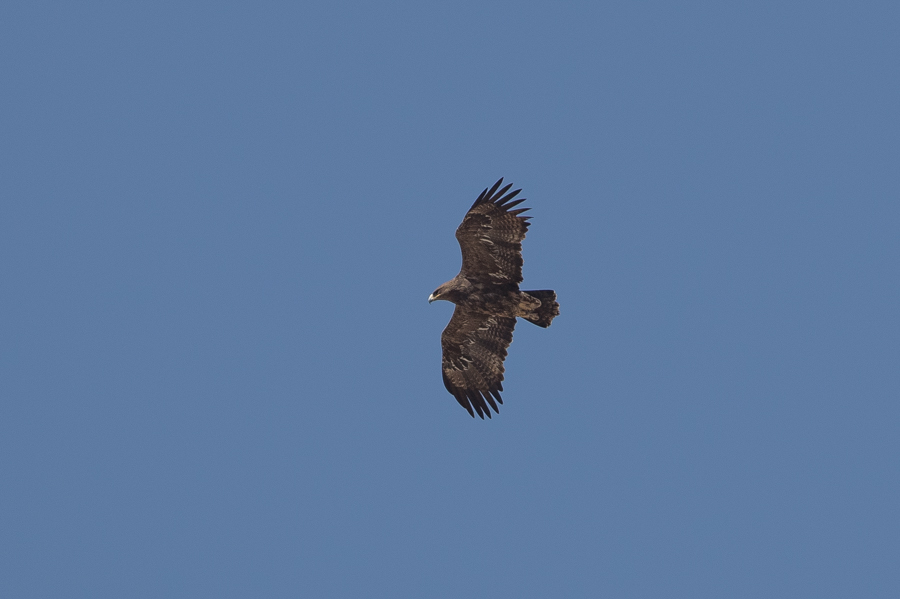
Jem Babbington
Jem Babbington is a keen birder and amateur photographer located in Dhahran, Eastern Saudi Arabia where he goes birding every day. Jem was born in England and is a serious local patch and local area birder who has been birding for almost forty years and has birded in more than fifty countries. Jem is learning to ring birds in Bahrain as a perfect way to learn more about the birds of the area. Saudi Arabia is a very much under-watched and under-recorded country.
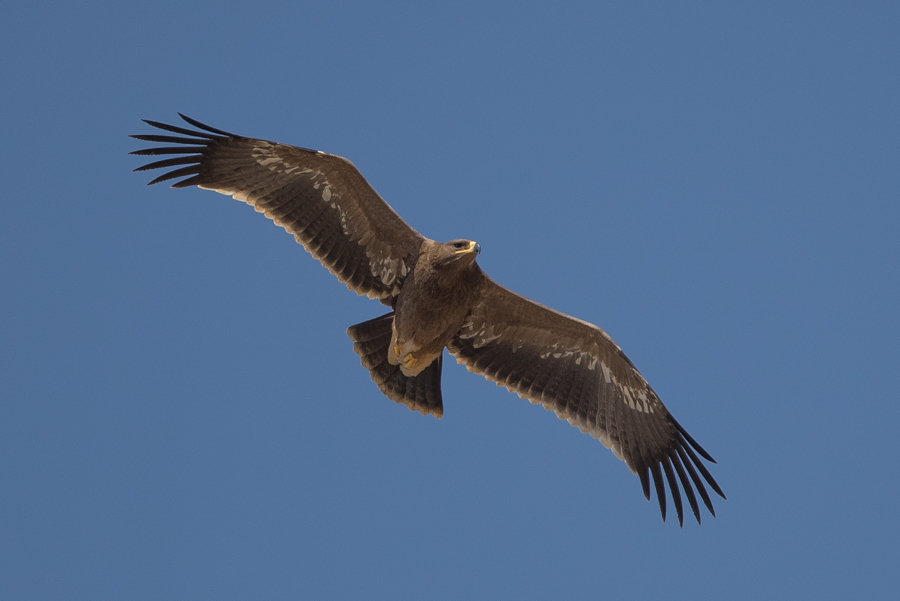
Leave a Reply